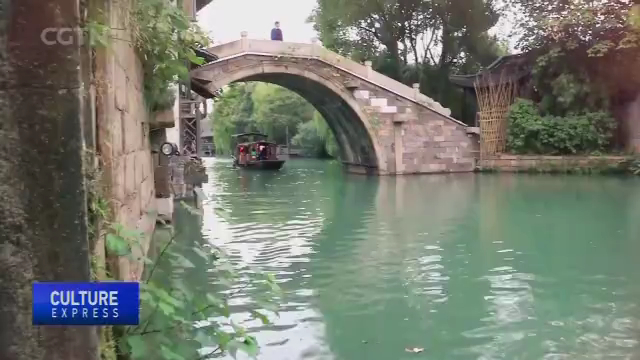
19:14, 22-Oct-2018
Wuzhen, a Water Town: A tour of the waterscape of Wuzhen
Updated
19:00, 25-Oct-2018
02:23

Erica: Before we go, I want to bring it back to the water town of Wuzhen where water plays such an important role.
Julian: I love water, like the Wuzhen theater festival, it has this cohesion that brings people together. I've always heard that water is part of people's lives, the food, landscape and architecture here, and so I went out on a little excision to see for myself.
This is the cradle of Wuzhen, the Grand Canal, the longest and oldest man-made waterway in the world that links Hangzhou in the south and Beijing in the north. First constructed in the 5th century BC, it moved grains, strategic raw materials, and even the emperor around the country.
JULIAN WAGHANN WUZHEN "This is the main artery branching off from the grand canal just right off in the distance. This water coming from the grand canal has been feeding the entire town of Wuzhen for more than 1300 years."
Thanks to it, Wuzhen thrived. At one point, there used to be as many as 120 bridges in Wuzhen and even today there are still 72 bridges in the west zone alone, making the town a dense mini metropolis.
JULIAN WAGHANN WUZHEN "The best way to travel Wuzhen is still by boat. In its heydays, every house had a dock. This is also how rice and silk from Wuzhen were transported to the rest of the region and country."
Water is so integrated into Wuzhen's life, that they even traded on water, probably saving a lot of time and hassle. And as tourism is now the staple commerce here, the water market has given way to a dock terminal. And this is where I'm getting off, for some delicious local treats.
JULIAN WAGHANNWUZHEN "Sipping a cup of locally grown tea, made with Wuzhen water, where the tea was probably also transported here on water, all the while enjoying the soft sounds of water caressing the tea houses standing on water. What is an amazing once in a lifetime experience!"

SITEMAP
Copyright © 2018 CGTN. Beijing ICP prepared NO.16065310-3
Copyright © 2018 CGTN. Beijing ICP prepared NO.16065310-3